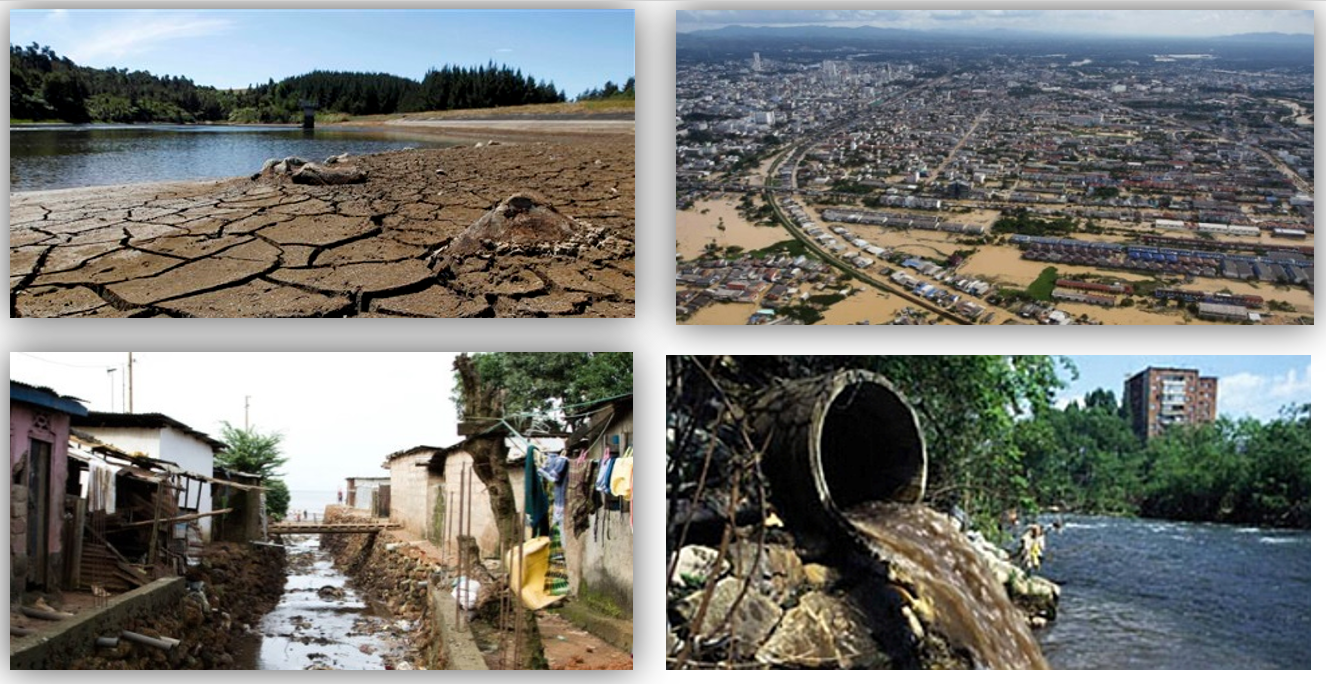Co-author: Héctor Alexander Serrano, Water Resources Specialist, World Bank Water Global Practice
Also available in Español
Water Security is the new buzzword in the water sector… but what does it mean, really? And how is it applied to real life?
In a world of rapid changes, unequal water resources, polluted water bodies, growing demands, and increasing climate variability and climate change, our relationship with water is quickly shifting. For countries and governments, the term national water security means having adequate water, both in quantity and quality, to meet all demands of the population, the productive sectors and the environment, but also dealing well with extremes, and overall managing the resource adequately and efficiently.
In Latin America, home for 650 million people, those changes are not an exception, and the term “Water Security” is becoming more and more relevant. In the most urbanized continent of the developing world, cities grow fast, vulnerability is latent in vast and fragile large peri-urban areas, and enhanced climate phenomena put high stress on water resources management, delivering of water services and means of production. About 227 million people still do not have access to safely managed water supply and more than 500 million do not have access to safely managed sanitation systems. In the Caribbean region, 26 million people fall into poverty each year because of natural disasters. Urban rivers and waterways in the region are among the most polluted in the world, since 70 percent of the wastewater discharged in the region receives no treatment.
The World Bank has launched an initiative to support governments to assess national water security in a comprehensive and systematic manner. This is not just a conventional assessment of the water sector, going beyond it to quantify the economic, social and environmental impacts that water has in the socio-economic development of a country.
Three countries have been selected to start this regional initiative: Argentina, Colombia and Peru. A multidisciplinary team of high level experts is working closely with the Governments and stakeholders in these countries to assess the positive and negative impacts of the performance of the water sector in the country’s development. In parallel, the World Bank is gathering and assessing a great amount of sectoral information for the rest of the region. A comprehensive set of key indicators across countries measuring the countries’ water endowment characteristics, the architecture of the water sector and ultimately the performance of the water services provision, water risk management and water resources management will be a powerful benchmarking tool to incentivize transformational changes to address the key bottlenecks that constrain growth and opportunities.
The final product of this work will show how water has a multiplicative effect in other sectors and how addressing key challenges can trigger positive changes in the LAC countries’ economy. It will highlight current water constraints and provide guidance to define a pathway to increase water resilience, reduce associated water conflicts, improve delivery of water services and sustain water resources, and contribute to a more robust, inclusive and sustainable development. Stay tuned for updates…


Join the Conversation